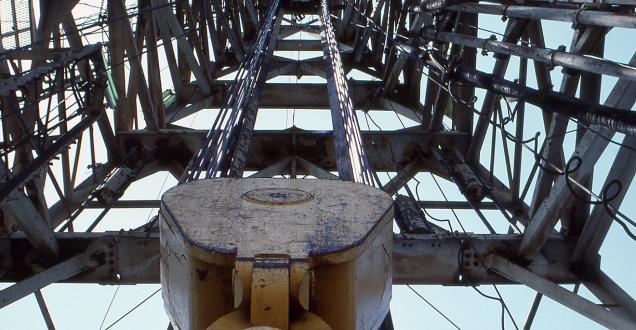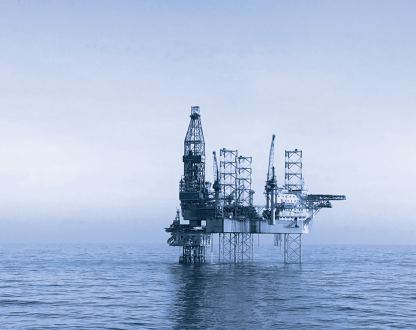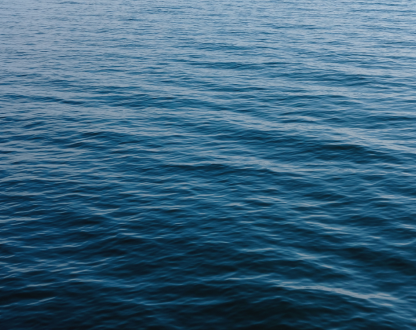Bid for exploration permits
The Australian Government releases new offshore areas for oil and gas exploration via the offshore petroleum exploration acreage release.
Before the release, companies can nominate their areas of interest to the Joint Authorities for assessment.
The acreage release provides an opportunity to competitively bid for an exploration permit over an area.
The government assesses the bids to determine which work program is most likely to achieve the fullest assessment and understanding of petroleum potential within a permit area, in the specified time frames.
Successful bidders are granted a work bid exploration permit: a 6-year title that can usually be renewed for a further 2 periods of 5 years. Acreage release areas that are one graticular block in size cannot be renewed for a further permit term.
Explore permit areas
Before a petroleum exploration permit holder can carry out activities in their approved work program, NOPSEMA must have accepted an environment plan for the activity. This must demonstrate how they’ll manage their activities’ environmental impacts and risks to as low as reasonably practicable, and an acceptable level.
Depending on the nature of the activity, companies may also need:
- a safety case demonstrating how they’ll manage risks to ensure their offshore activities are safe
- a well operations management plan (WOMP) demonstrating how they’ll maintain well structural integrity to protect the health and safety of offshore oil and gas workers, and prevent oil and gas releasing into the environment.
If NOPSEMA accepts these submissions, permit holders can carry out their own seismic surveys or drilling tests in areas shown to be more likely to hold oil and gas deposits. They can also purchase seismic data from other companies.
Exploration doesn't always result in oil or gas discovery.
Seismic surveying
A key part of oil and gas exploration is seismic surveying, which involves sending controlled pulses of sound towards the seabed to generate detailed images of underlying geological formations.
Companies with an exploration permit and appropriate environmental approvals can carry out seismic activities in their own title areas. To survey in an adjoining area, they need to apply to NOPTA for a short-term access authority.
Other companies looking to survey vacant areas can apply to NOPTA for a special prospecting authority. Read about short-term oil and gas titles on the NOPTA website.
Read about seismic surveys and the environment on Geoscience Australia’s website.
Search seismic surveys on the National Offshore Petroleum Information Management System (NOPIMS) website.
Offshore greenhouse gas storage
Greenhouse gas storage may coincide with oil and gas permit areas. Visit NOPTA’s interactive map.
Develop permit areas
Companies who find oil or gas while exploring their permit area must determine whether it’s commercially viable to recover under current technological and economic conditions.
Companies can apply for a production licence over the area if the deposit is deemed viable. Before recovering the deposit they must submit and have accepted:
Companies can apply for a retention lease if the deposit isn’t currently commercially viable, but is likely to be within 15 years. Retention leases run for 5 years and may be renewed.
There are also other licences and approval processes for development activities including:
Protect the environment
Under the Offshore Petroleum and Greenhouse Gas Storage (Environment) Regulations 2023, all oil and gas activities must have an environment plan assessed and accepted by NOPSEMA before an activity can take place. Oil and gas companies must demonstrate to NOPSEMA how they will manage their activities’ environmental impacts and risks to as low as reasonably practicable, and an acceptable level.
To be accepted by NOPSEMA the plan must:
Find environment plans open for comment, under assessment or accepted on NOPSEMA’s website.
Offshore project proposals
Oil and gas recovery activities require an offshore project proposal to be prepared and assessed by NOPSEMA.
Environmental management
The Department of Climate Change, Energy, the Environment and Water (DCCEEW) has a range of resources to support environmental management, including:
Check this information against offshore titles on NOPTA’s interactive map, available through the National Electronic Approvals Tracking System (NEATS) public portal.
Native titles
Companies must consider if native title claims affect their exploration activity. Search the National Native Title Tribunal registers and visit NOPTA’s interactive map.
Consult with stakeholders
When preparing an environment plan, oil and gas companies may consult with a range of stakeholders, including government agencies, fishing, tourism and other business operators, community groups and non-government organisations (including conservation groups). Further information on consultation with Australian Government agencies can be found on the NOPSEMA website
Companies must document consultations and explain how they have addressed any relevant issues and concerns, and provide this to NOPSEMA before an environment plan is accepted.
Environment plans for seismic surveys or exploration drilling are subject to a public comment period prior to assessment by NOPSEMA.
Consultation for offshore project proposals are open for public comment for at least 4 weeks.
Consider other marine users
Oil and gas activities in Australian Commonwealth waters must comply with Australian law, and must not interfere with the rights and interests of other marine users.
Companies should consider the following matters before commencing activities.
Australian marine parks
Oil and gas activities are only permitted in certain marine park zones. Activities may be authorised in multiple-use zones and special purpose zones, subject to the marine park management plan.
For more information contact marineparks@environment.gov.au
Underwater cultural heritage
DCCEEW administers the Underwater Cultural Heritage Act 2018 (UCH Act). The UCH Act requirements are separate to the EPBC Act requirements.
The Australasian Underwater Cultural Heritage Database contains historical and environmental information about shipwrecks, sunken aircraft and other types of underwater heritage sites.
Defence practice areas and safety
Activities may be restricted when they coincide with offshore Defence Restricted Areas and restricted airspace. See notice to airmen and notice to mariners for current restrictions. You could be ordered to evacuate defence training areas at short notice.
Unexploded ordnance (UXO) may be present on or in the sea floor. View the UXO mapping application to determine the areas the Department of Defence has identified as having UXO potential.
For further guidance contact offshore.petroleum@defence.gov.au and datacentre@hydro.gov.au at least 5 weeks prior to commencing activities
Commercial fishing
Commercial fisheries operate across all state and Northern Territory waters, and to the Australian exclusive economic zone limit. Companies must consider the impact of oil and gas activities on commercial fishing in Australian Commonwealth waters when preparing their environment plan and offshore project proposal.
Find guidance on improving the engagement between the seismic and commercial fishing industries on the Department of Agriculture, Fisheries and Forestry website.
Read about consulting with Australia’s fishing industry on the Australian Fisheries Management Authority (AFMA) website.
Read about Indonesian traditional fishers who use traditional fishing methods in Australian waters on the Department of Agriculture, Fisheries and Forestry website.
For more information contact petroleum@afma.gov.au
Maritime security
Companies may need to assess their security risk and prepare a security plan.
Read about maritime security on the Department of Home Affairs website.
For more information contact border.policy@homeaffairs.gov.au
Water safety
Companies must put in place measures to mitigate collision risks with all shipping traffic.
Read about navigating safely on the Australian Maritime Safety Authority website.
For more information contact NavSafety@amsa.gov.au
Submarine cables
Companies must manage risk and avoid accidental damage to Australia’s submarine telecommunication cables.
Read about restricted petroleum and exploration activities on the Australian Communications Media Authority website.
For more information contact subcablesenquiries@acma.gov.au
Electricity infrastructure
See the status of suitable areas under the Offshore Electricity Infrastructure Act 2021 on the DCCEEW website.
Decommission oil and gas infrastructure
Companies must decommission oil and gas wells, pipelines and other infrastructure that are either:
- no longer needed
- no longer in use.
Decommissioning activities, like plugging and abandoning wells, removing property, and rehabilitating sites, must be done in a timely, safe and environmentally responsible way.
You need an accepted environment plan, safety case and other documentation just like other oil and gas activities.
Read the offshore decommissioning requirements:
Find support and advice from our Offshore Decommissioning Directorate:





